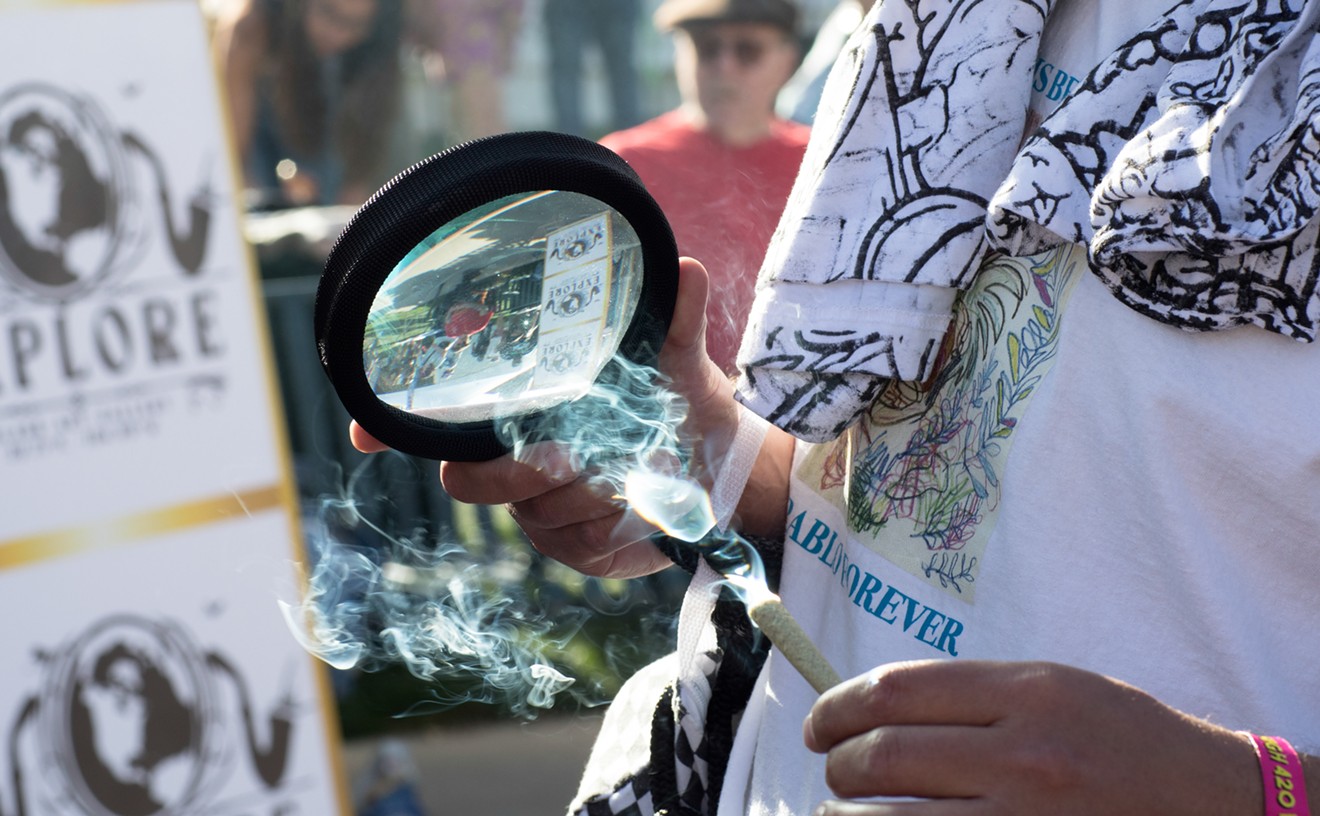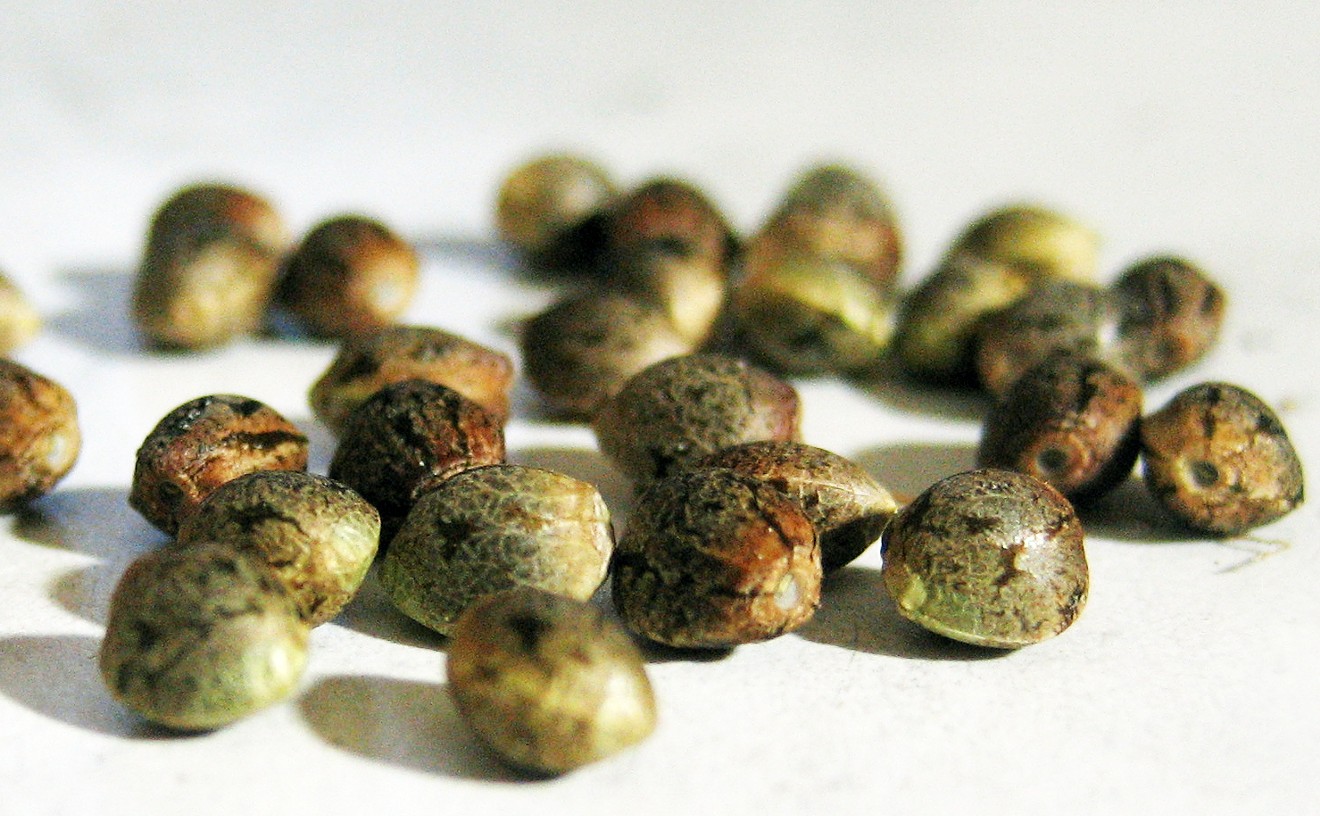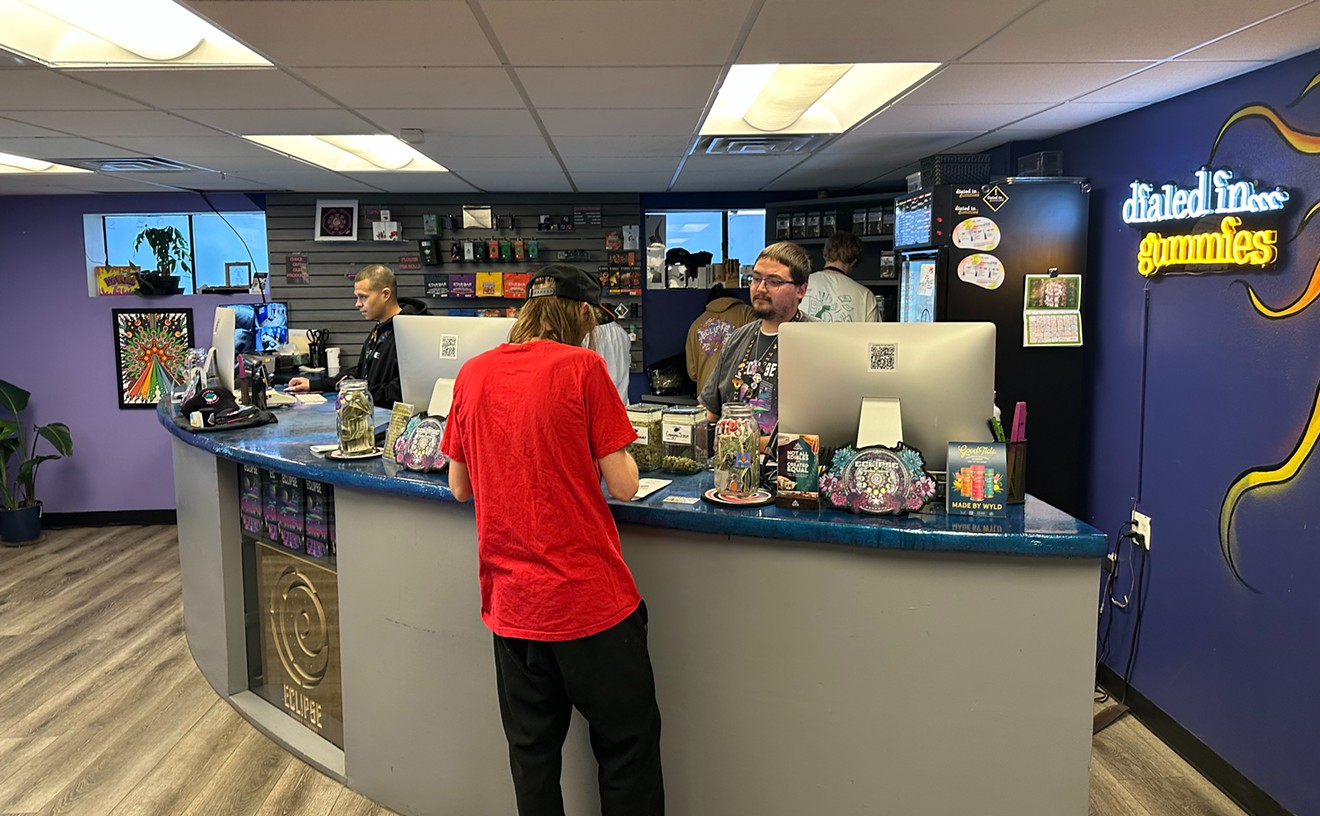In a random assessment conducted by the Denver Department of Public Health and Environment in September, Denver dispensaries failed health inspections for mold and yeast. Westword studied reports for tests conducted at 25 dispensaries over a two-day period, and at twenty of them, some form of cannabis tested over the state's limit for total mold and yeast. That's an 80 percent failure rate. Many of the failing products came from outside growers whose marijuana had already passed state tests.
The results of the assessment and what they might mean for city and state pot programs are still under review by the DDPHE, which won't publish its report on the study for some time. But the department acknowledges that concerns over contaminated cannabis inspired the test. In 2019 alone, Colorado has seen a handful of commercial pot recalls over mold concerns. Rumors of shady practices to pass mold testing abound, and industry insiders also gripe about the state's testing process for mold, as well as the lack of context that most testing labs provide for mold and yeast specificity.
Opinions about what is or isn't moldy cannabis, much less the safety of consuming it, vary widely. Most growers want to provide safe weed, but also have a lot of money on the line if their buds get flagged.
To dive deeper into what commercial cannabis growers are facing, we caught up with Chuck Blackton, founder and owner of Verde Natural Wellness, a dispensary and cultivation company with two stores in Colorado — and zero reported mold or pesticide issues.
Westword: Why is mold becoming an issue for commercial cannabis now? Is this something that's been going on for a while?
Chuck Blackton: A lot of it comes down to how these people set up their grow rooms. At the end of the day, you're playing God in these grow rooms. You hit a certain dew point, you get a swing of temperature and all that sort of fluctuation, and that mold and powdery mildew starts to happen. I think a lot of it is due to how people are setting up their rooms, with exhaust placement and temperature control. I don't think a lot of people want to put the money in to make sure it's perfect, and then they have to deal with these issues.
There are also certain strains that can handle it better than others. Some strains and genetics really are more susceptible to these things, and not everyone considers that when they're setting up these huge grows. People who are buying genetics from others can fall to it. Powdery mildew is a systemic problem. Let's say I have it on my plants but we clean it up and then plan on [cloning it] — that still doesn't mean that PM is all the way out of there. It could come back in future crops. When I first moved to Colorado, a lot of people didn't even know what PM was. After all these growers came here from other climates, it started happening a lot more.
Out here, we've had so many genetics spread around that aren't necessarily clean. Some people have gone back to popping seeds, to know they have a clean start. Others are using tissue culture, because you're almost guaranteed clean genetics. It's an evolving way to clean up some of that undesirable stuff, but it's pretty expensive. Even with all of that, it still doesn't mean that you can't have environmental problems. You can have the best growing room out there, but maybe one night the electricity goes off, or the temperature fluctuates.
For us, we don't get the yield certain people do. We want a good yield, but we don't concentrate on it. When you grow these exotic strains, they don't yield the way a normal producer would. I think a lot of the more corporate minds are the people concentrated on the bottom line; they concentrate on yield.
What are some precautions or techniques you use to avoid mold entering the grow?
For everyone, no matter the size of the operation, it's been one of the hardest things, because it's agriculture at the end of the day, and things are going to happen. And there are only so many products we're allowed to use right now, because of regulations. I think a lot of these laboratories that test cannabis — not just in Colorado, but other states, too — they need to pay attention to the curve, because we can only use products that are certified by the state, and there's not enough. Still, when you think of what we smoked back in the day, who knows what was in there. In that regard, thank God for the testing!
If you let powdery mildew go, it spreads rampant. If you catch it early, you can take care of it. But once the resin starts to develop the mildew, you can't spray it. You're limited in what you can do once you can catch it, if it's caught too late.
For us, the way we do our growing rooms, we have a lot of smaller rooms. We don't have rooms with hundreds of lights and tons of plants. Because that's something I've always said: The bigger the room, the more you need to keep an eye on things. When you have smaller rooms, you can give more love to the plants. When you have these large rooms, the risk is too big.
How have the cannabis and agricultural industries evolved to take on these contamination issues?
The more we're moving on, the more nutrient companies are evolving. They know we can't use a lot of this other stuff [for other plants]. Sometimes, you reach a point where a problem with a plant gets so bad that you just can't do anything more about it. It all depends on how early you catch everything.
It's also maintaining your [growing] environments, and having a good team that checks on them. Sometimes you can have the best team and best environment, and things still happen. Even in small, independent grow rooms, people still have these problems.
For us, we've had different problems with bugs, and a lot of it had to do with grows that were set up near us and had problems, which then spread to us. So we have sterile clothes in the grow room now. We spray our shoes down. It's a tough thing to manage, no doubt about it. But this is all gardening, and you need to give these plants as much love as you can.
Are the issues more avoidable in outdoor or greenhouse grows?
Indoors, you're always going to be more in control. Outdoors, you're at the mercy of Mother Nature. In northern California and Humboldt areas, you'll have a lot more cloudy days than others. Indoors, you'd definitely have the most control with lighting and temperature. In a greenhouse, you'll have more control than outdoors, because you're still inside with supplemental lighting.
How does a grower more concerned with quality of cannabis than yield stay afloat as more big money comes into Colorado's cannabis industry?
You'll either be caught up in the commercial game or become a microbrewery — that's how I look at it. For a lot of people, it's never been about the money. It's always been about providing the best, and we'll keep at it. Is it difficult to compete against this big money? Of course it is, but at the end of the day, people can still buy a Bud Light or craft beer.
How we grow it, the love we put into the plants — the culture of true smokers understand what true quality is. But then you also have a lot of uneducated users who are just looking for a good deal. I feel like we're able to keep up with the madness, but we're not trying to over-expand and take over the world. We want to do things at the right pace.
What I have a problem with is potency testing. I'll smoke something that supposedly tests at 33 percent THC, and then I'll smoke something else that tests at 12 percent, and the two don't compare. The 12 percent stuff can be much better. To me, that's a marketing ploy. When we wholesale weed, some people only want strains that test above 20 percent THC. My test is putting it in my Sheldon Black bong and lighting up.
Most of these people trying to take over this industry with deep pockets don't even smoke. I'll talk with someone for an hour about the cannabis business and ask if they want to light a joint after we're done. They almost always say that they don't smoke! A lot of old-school people have been kicked out of this industry because they can't afford the money it costs anymore. Some of the best growers of our generation can't afford to get into this, or they have felonies for growing. It's that kind of stuff that still makes you sad.
Even myself, I've gotten burned out sometimes. But I'm needed here. There's still a lot of people who have the love for quality buds and that original excitement.
[
{
"name": "Air - MediumRectangle - Inline Content - Mobile Display Size",
"component": "12017618",
"insertPoint": "2",
"requiredCountToDisplay": "2"
},{
"name": "Editor Picks",
"component": "17242653",
"insertPoint": "4",
"requiredCountToDisplay": "1"
},{
"name": "Inline Links",
"component": "18838239",
"insertPoint": "8th",
"startingPoint": 8,
"requiredCountToDisplay": "7",
"maxInsertions": 25
},{
"name": "Air - MediumRectangle - Combo - Inline Content",
"component": "17261320",
"insertPoint": "8th",
"startingPoint": 8,
"requiredCountToDisplay": "7",
"maxInsertions": 25
},{
"name": "Inline Links",
"component": "18838239",
"insertPoint": "8th",
"startingPoint": 12,
"requiredCountToDisplay": "11",
"maxInsertions": 25
},{
"name": "Air - Leaderboard Tower - Combo - Inline Content",
"component": "17261321",
"insertPoint": "8th",
"startingPoint": 12,
"requiredCountToDisplay": "11",
"maxInsertions": 25
}
]













